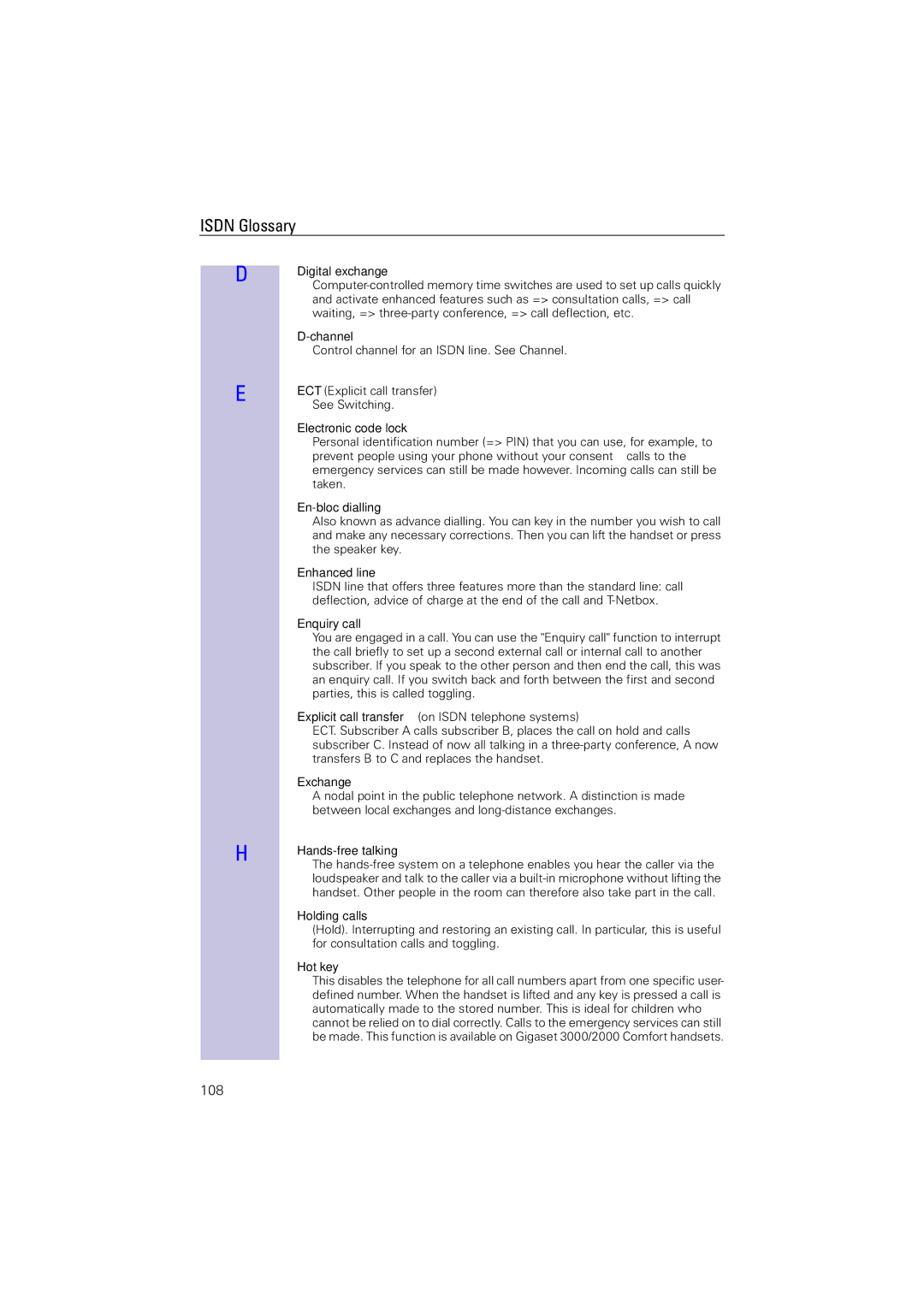
ISDN Glossary
D
E
H
Digital exchange
D-channel
Control channel for an ISDN line. See Channel.
ECT (Explicit call transfer)
See Switching.
Electronic code lock
Personal identification number (=> PIN) that you can use, for example, to prevent people using your phone without your consent – calls to the emergency services can still be made however. Incoming calls can still be taken.
En-bloc dialling
Also known as advance dialling. You can key in the number you wish to call and make any necessary corrections. Then you can lift the handset or press the speaker key.
Enhanced line
ISDN line that offers three features more than the standard line: call deflection, advice of charge at the end of the call and
Enquiry call
You are engaged in a call. You can use the "Enquiry call" function to interrupt the call briefly to set up a second external call or internal call to another subscriber. If you speak to the other person and then end the call, this was an enquiry call. If you switch back and forth between the first and second parties, this is called toggling.
Explicit call transfer (on ISDN telephone systems)
ECT. Subscriber A calls subscriber B, places the call on hold and calls subscriber C. Instead of now all talking in a
Exchange
A nodal point in the public telephone network. A distinction is made between local exchanges and
Hands-free talking
The
Holding calls
(Hold). Interrupting and restoring an existing call. In particular, this is useful for consultation calls and toggling.
Hot key
This disables the telephone for all call numbers apart from one specific user- defined number. When the handset is lifted and any key is pressed a call is automatically made to the stored number. This is ideal for children who cannot be relied on to dial correctly. Calls to the emergency services can still be made. This function is available on Gigaset 3000/2000 Comfort handsets.
108
